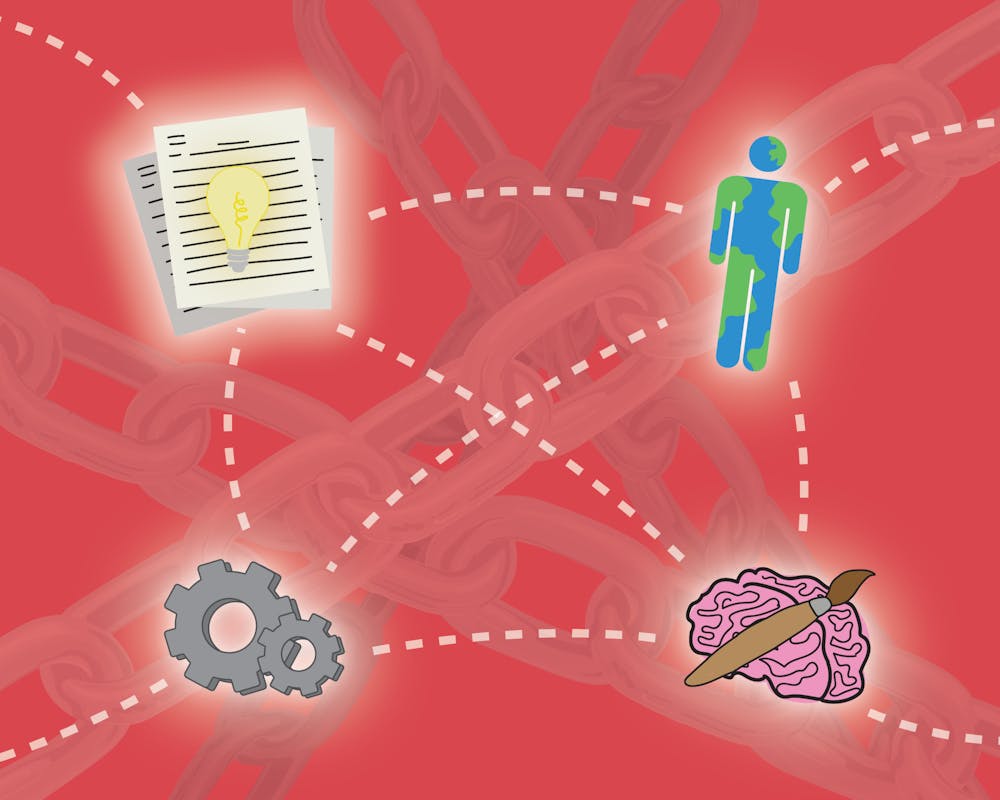Starting in Fall 2022, the Global Miami Plan, the set of classes required for all Miami University students, will be replaced by the Miami Global Plan. Revisions were made by the Liberal Education Committee, which started working on the new plan in 2019.
Both plans share the same amount of credit hours, and most of the requirements for students will remain the same, but revisions were made to clarify the plan for students and faculty.
Provost Jason Osborne said that changes were made to continue pushing Miami forward.
“It wasn’t really that anything was wrong, it’s just that we want to keep improving and streamlining where possible,” Osborne said.
Current students, including this year’s incoming first-years, will continue taking classes under the Global Miami Plan. Incoming students beginning in fall 2022 will have to complete the Miami Global Plan requirements.
“This year is an implementation year,” Osborne said. “Which means we’ve got the framework, but now we’re working with departments, and we’re trying to make sure that we’re ready to implement it.”
After fall 2022, all students will have the option to switch to the new plan if they decide it works better for them.
The current plan requires students to take classes in five foundations: English Composition, Creative Arts, Humanities and Social Science, Global Perspectives, Natural Science, and Mathematics, Formal Reasoning and Technology.
It also includes a thematic sequence, which requires students to take 9 credit hours in a major outside of their department.
Instead of five foundations, the Miami Global Plan will consist of four perspective areas: Formal Reasoning and Communication, Science and Society, Arts and Humanities, and Global Citizenship.
The main difference between the Global Miami Plan and the new Miami Global Plan is that the thematic sequence will be replaced by Signature Inquiries.
Leighton Peterson, interim director of liberal education and member of the Liberal Education Committee, said Signature Inquiry courses will be more interactive.
Enjoy what you're reading?
Signup for our newsletter
“One of the requirements in the Signature Inquiry courses is that it’s not just that you sit there and listen to a lecture – that it is hands-on, and students have opportunities to investigate, to research, to test hypotheses … so it’s a different kind of introductory class,” Peterson said.
In their Signature Inquiry, students will take classes in different departments that address similar real-world issues. For example, students can choose Equity, Justice and Diversity or Global Health and Wellness as their Signature Inquiry concentration.
Peterson said these Signature Inquiries will highlight “Miami Moments,” an experience students may have in class when they make connections to another class in a different discipline.
“It’s where you’re sitting in a class and you’re like, ‘Oh my god, I’m sitting in this English class, but that’s what my physics professor said,’ and it all kind of clicks,” Peterson said. “It’s those ‘Miami Moments’ that we’re trying to build on and facilitate.”
Shelley Bromberg, director of the office of liberal education and chair of the Liberal Education Council, said thematic sequences confused both students and faculty. The Signature Inquiries will hopefully be less confusing and more flexible.
“It’s not just one set of courses like the thematic sequences – a lot of times students couldn’t get those courses, these are much more,” Bromberg said. “You’ve got many more options.”
Students can also “double-dip,” and earn credit for perspective-area courses while completing their Signature Inquiries, which was not possible with thematic sequences.
Both plans account for the requirements set by the Ohio Department of Higher Education (ODHE), which dictates the general education requirements for public Ohio universities. One new requirement is diversity, equity and inclusion, which will be covered by the plan’s Global Citizenship perspective area.
The plans also align with Miami’s value of liberal education, where students gain a broad width of knowledge, something employers also value.
“At a university like Miami, a liberal education says, ‘We want you to explore your major, but we also want you to be able to understand how a large variety of things may interact and [we want to] provide you with additional resources for your future,’” Bromberg said.
One of the main purposes of the new Miami Global Plan is to be more beneficial for students.
“A lot of things don’t have to change,” Peterson said. “Social sciences courses will still be social science. Humanities courses will still be humanities. What will change is how we look at them together.”




